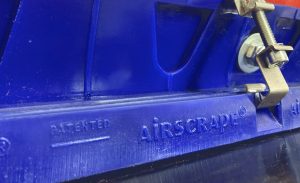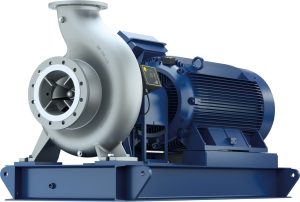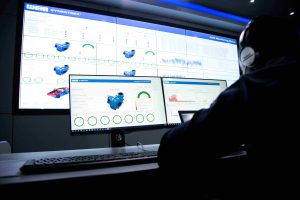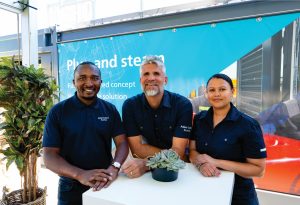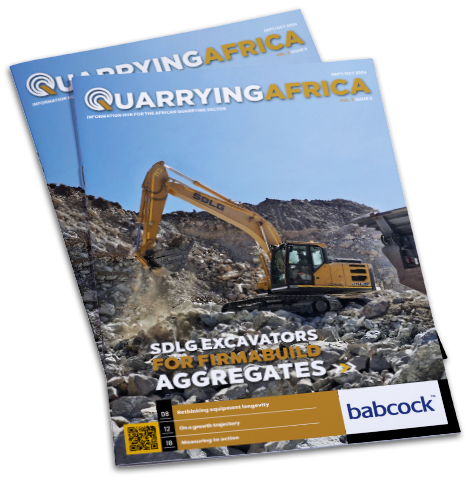Despite the tough regional and international economic conditions, the South African commercial vehicle market once again experienced solid growth in 2024. This was the overarching message from UD Trucks Southern Africa’s annual press conference held on January 31, 2024.
Overall, the new vehicle market recorded a total of 32 169 sales, up from 29 455 in 2022, representing a 9,2% growth. UD Trucks Southern Africa equally concluded the year with a solid sales growth. While 2023 was certainly not ‘a walk in the park’, Filip Van den Heede, MD of UD Trucks Southern Africa, says the company is pleased to have successfully lived up to its holistic proposition – “delivering transport and service solutions that the world needs today”.
“In pursuit of this goal, we have accomplished various objectives, including retail excellence, introducing innovative transport solutions, enhancing our aftersales offering to reduce total cost of ownership and improving parts availability at dealer premises. All these have led to even further improved uptime and resale value for our customers, among other achievements. With improved cost of ownership and uptime, we are ultimately driving customer satisfaction,” says Van den Heede.
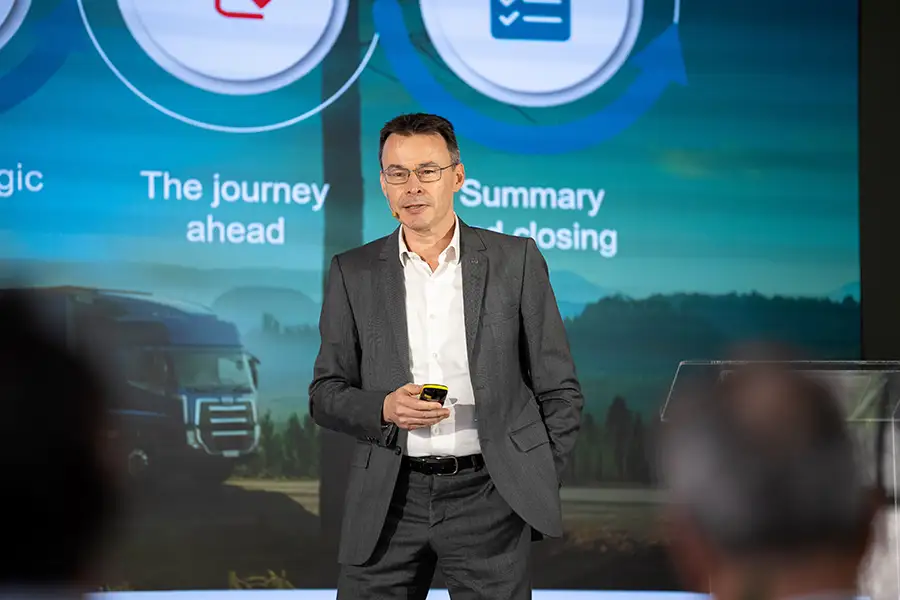
Rory Schulz, Sales Director at UD Trucks Southern Africa, says, as fleet operators continue to grapple with the effects of high fuel prices and generally tough operating conditions, the importance of considering TCO in all their decisions cannot be emphasised enough. With that in mind, UD Trucks Southern Africa has in the past few years paid particular attention to TCO to help maximise customer profitability. This, he says, forms part of the company’s drive to provide total transport solutions to its customers.
“Traditionally, we have always had a huge focus on lifecycle costs. However, in recent years we have expanded the scope to total lifecycle costs, factoring not only the purchase price of a vehicle but also the cost of operating it and the resale value, amongst other considerations,” says Schulz. “In our view, the TCO of a vehicle plays a critical part in the life of any logistics operation, especially in the South African context, where the cost to perform logistics largely influences the profit and loss dynamics of a business.”
In its approach to tackling TCO, UD Trucks Southern Africa has divided total operating costs of a vehicle into two segments – fixed and variable costs.

Fixed costs
Fixed vehicle expenses, explains Schulz, are the costs that come with owning a truck, whether it is on the road or not. Fixed costs largely remain the same from month to month, no matter how much the vehicle is used.
Fixed costs include the purchase price of the vehicle, the cost of capital, repayment costs, balloon or residual costs, vehicle depreciation, insurance, vehicle licence and registration, fleet management fees, driver and crew costs, as well as carbon tax, amongst others.
To help its customers lower their fixed costs, UD Trucks offers various solutions and mitigations. Firstly, through UD Trucks Finance solutions, the company offers customised and flexible financing solutions that speak directly to each customer’s needs, based on UD Trucks’ better understanding of the trucking business than that of traditional financiers. Whether the customer is looking at tax-efficient financing, tax liability reduction or cash flow improvement, UD Trucks Finance has the right on-balance or off-balance sheet finance solutions available. Instalment options can be customised to suit unique business needs.
“To help customers reduce their fixed costs, a dependable and cost-effective product is a must. UD Trucks is known for its ‘value for money trucks’ designed to get the job done, without any unnecessary extra ‘bells and whistles’. Several generations of UD trucks have provided trusted durability and reliability to several generations of regional and global customers,” says Schulz.
In addition, UD Trucks Southern Africa places high value on driver training, all the way from the headquarters through to its dealers. Why driver training? A trained driver, says Schulz, generally drives more efficiently. In an environment where fuel costs continue to soar, effective driver training can help improve fuel consumption, allowing fleet owners to get more fuel for their hard-earned money. With better driving, there is also less strain on vehicles and therefore, less maintenance required.
A wide dealer network is also key to ensuring maximum vehicle uptime for customers. This is complemented by service and maintenance contracts (UD Trust Service Agreements) to ensure customer vehicles have Original Equipment Manufacturer (OEM) support throughout their service life. Routine maintenance resolves potential hazards before they unfold further and become costly breakdowns. Regular OEM servicing ensures consistent performance across the truck fleet so that production stays on track and meets the fleet owner’s objectives.
Through UD Connected Services, drivers and fleet managers can look forward to greater fuel efficiency, more time savings and better drivability. As the successor to UD Trucks’ acclaimed UD Telematics Services, UD Connected Services places the power of smart logistics in the fleet manager’s hands – giving them powerful tools to monitor fuel efficiency, route planning and improve delivery turnaround times with an eagle-eye view on driving performance, trip details and individual vehicle health.
UD Trucks Southern Africa also offers Euro 5 technology as standard ahead of regulations, which enhances efficiency and optimises TCO, all while lowering the vehicle’s environmental impact. Euro 5 reduces NOx emissions by about 43% compared to Euro 4, thus reducing the carbon footprint of the vehicle through cleaner emissions. This helps fleet owners lower their carbon tax liability.
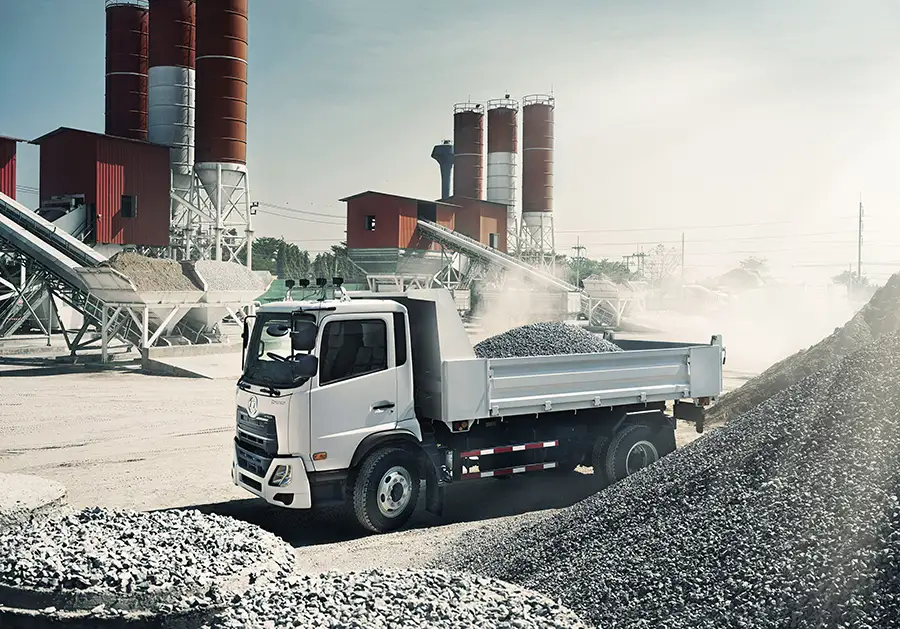
Variable factors
Variable costs in trucking fluctuate with the operation of trucks. In other words, the more kilometres one drives, the more variable costs are incurred. Variable factors in trucking are wide-ranging and include fuel, tyres, Ad Blue, lubricants, service and maintenance, repairs, daily checks, toll fees, fines, downtime costs and resale value, amongst others.
According to Schulz, fuel is the main cost driver for truck owners. In a recent TCO analysis, the company found that fuel now constitutes 67% of the total operating costs of a vehicle. “Some ten years ago, fuel was about 35% of the total cost of running a truck. Due to soaring diesel prices, it has increased to 67% of the costs to operate a vehicle,” he says.
With Euro 5 technology, which provides high power and torque through optimised combustion without increasing the size of the engine, customers will reduce their fuel bill significantly. In addition, Euro 5’s lower maintenance requirements reduce operational costs. Given that Ad Blue may not be readily available at fuel stations, UD Trucks Southern Africa’s dealer network now stocks Ad Blue to ensure adequate supply for customers operating Euro 5 trucks across the region.
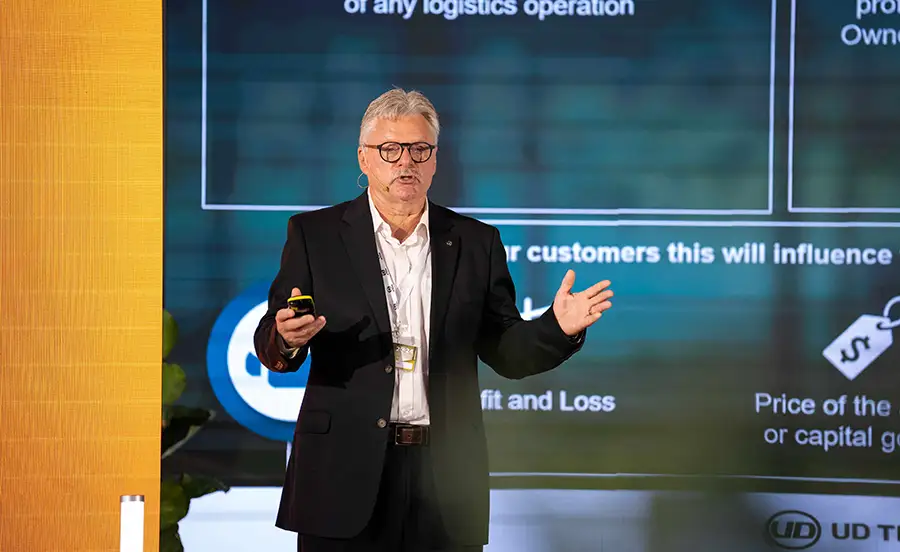
“With Fuel Coaching, we have the answer to fuel costs. Our trucks are equipped with a built-in fuel coach, an onboard solution clearly displayed to give instructions to the driver in real time,” explains Schulz. “Fuel coaching encourages an optimal driving style at all times. It gives feedback and simple suggestions on how to improve safety and fuel efficiency, immediately and over the long term.”
This is complemented by UD Connected Services, which is designed to encourage better driving behaviour and protection of fuel assets. Fuel utilisation reports demonstrate how the truck and driver are performing, while fuel advisory services help to improve driving behaviour.
With UD Trust Service Agreements, customers can ensure that their vehicles always operate at optimal performance, thus ensuring fuel savings, product quality assurance and peace of mind. With local fleet owners realising the value, UD Trucks Southern Africa has seen massive growth of its service and maintenance contract portfolio in recent years, with the penetration rate for new vehicles increasing from 23% in 2020 to 44% in 2023.
In conclusion, Schulz says other solutions to variable costs include a wide dealer footprint, driver training, a 24/7 Uptime Support, call centre to ensure vehicle uptime and a used truck centre to support customer trade-ins.

